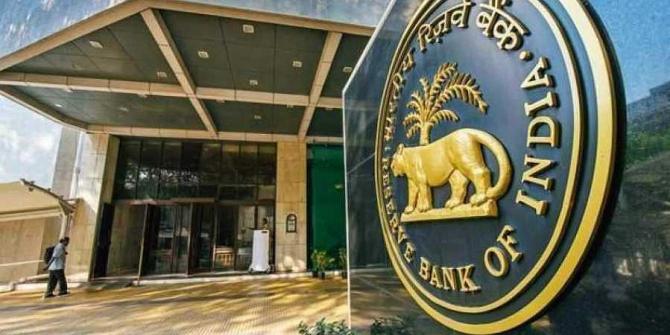With inflation remaining at elevated levels, central banks around the world, including the Reserve Bank of India (RBI), will kill excess demand in economy over the next six to eight months, sources in the know said.

They also indicated that there could be a rate hike in June, when the inflation forecast for the current financial year would be raised.
The RBI, the sources said, might announce more steps such as raising the limit on held-to-maturity (HTM) bonds to support government borrowings but might not come out with any further quantitative easing GSAP (Government Securities Acquisition Programme) measures.
The RBI will “certainly” raise the inflation forecast again in June, as it did not want to do it in the off-cycle emergency meeting held earlier this month, said the sources.
The sources did not give details on how much the inflation forecast would be raised but said the RBI’s current view trailed the International Monetary Fund’s projection of 6.1 per cent for India.
In April, the RBI raised its inflation forecast for the current fiscal year to 5.7 per cent, 120 bps above its projection in February, while cutting its economic growth forecast to 7.2 per cent for FY23 from 7.8 per cent.
The next meeting of the Monetary Policy Committee (MPC) is scheduled for June 6-8.
“The MPC did an off-cycle hike as it did not want to bunch off a big hike in just two meetings in June and August. They wanted to spread it (out),” one of the sources cited above said.
According to the sources, all reductions in the policy rate taken by the MPC since Covid-induced lockdowns were announced in 2020 would ultimately be withdrawn, but the timing has not been decided yet.
“It may take one year, it may take two years, but ultimately these have to be withdrawn," said the source.
Earlier it was hoped that these cuts would be withdrawn in a laidback manner because the economy was not doing well.
However, higher-than-expected inflation forced the RBI to hike the policy rate by 40 basis points outside the scheduled meeting.
The sources said the MPC was not resorting to any extraordinary steps but was just reversing the measures announced to fight the decelerating economic growth during the pandemic.
They said all central banks were now going to drive their economy towards a decline in demand.
“Whatever little demand there was will be killed and whatever little support inflation was getting will be killed,” said one of the sources.
They also attributed inflation to supply-side concerns.
While supply disruptions have been there for quite some, the constraints have worsened.
Now central banks are forced to act in some sense, they said.
The fear is that if inflation stays above the tolerance level for too long, it will enter into all the other things -- rents, wages, transport costs, and you can't do anything about it.
Typically, what central banks do is to nip it in the bud, they said.
On further measures, one of the sources said, “We have already offered HTM from our side. We said you can hold more and more securities with HTM, there is no price risk or interest risk.
"More (measures) will come out. Of course, the kind of support we gave to the market in February through GSAP is not possible now.”
The RBI increased the limit for keeping specified securities in the HTM portfolio from 22 per cent to 23 per cent.
The increase in the HTM limit by 1 percentage point could create an additional headroom of Rs 1.6-1.7 trillion for banks.
Banks can hold government securities without marking them to the market when yields are rising and prevent losses.
This can improve the appetite of banks for government securities and facilitate the large borrowing programme of the central and state governments while moderating the rising yields.
Explanatory letter to the government
If retail inflation remains above 6 per cent, the RBI, and not the MPC, will have to write a publicly available letter to the government.
If that happens, the sources said, the RBI will give the reasons such as the Russia-Ukraine war and supply disruptions.
Second, the RBI will have to tell the government its strategy to fight inflation.
The RBI will say it will use a sledgehammer, the sources added.
Third, the RBI will have to give a time period by when inflation will be brought below 6 per cent.
Sources said if the RBI gives a time period of, say, six months, it will mean that it will use more sledgehammer.
When asked whether RBI will blame the government's expansionary fiscal policies for abetting inflation in its letter, they said it is not fair to say that the government didn’t do anything to stop the surge in prices.
Forex reserves
Foreign exchange reserves, which have fallen below $600 billion for the first time in a year, causing some concerns, will again show a jump next week, reliable sources said.
They said the decline in forex reserves was not due to the RBI's intervention in the market to support the rupee, but due to valuation losses.
Forex reserves fell by $2.695 billion to $597.728 billion for the week ended April 29.
This was the eighth consecutive week of decline in forex reserves.
The last time the reserves fell below the $600-billion mark was during the week ended May 28, 2021.
Sources said the data to be released on this Friday may also show a decline in forex reserves.
However, the one that will come next week will show significantly higher reserves due to taking delivery by the RBI in its war chest of forwards.
This is reflected with a lag.
They said the RBI's intervention is not so big to cause such a fall in the reserves.
The dollar has appreciated against currencies of advanced economies.
So that has caused losses in terms of non-dollar assets, they explained.
They hoped that there would soon be a reversal of this currency valuation.
So far as intervention is concerned, the RBI was in the forex market even on Wednesday for the third consecutive day to smoothen the exchange rate movement.
They said the RBI is not concerned about any level of the rupee but there should not be any jerky movements.
Stagflation
Sources quoted Mohamed El-Erian, president, Queens' College, Cambridge University and chief economic adviser at Allianz, as saying that stagflation has already transitioned from risk scenario to base scenario.
Stagflation is globally upon us, they said. Even the world's most powerful central bank has no tool against stagflation.
Let us pray stagflation does not come to India, sources said.











